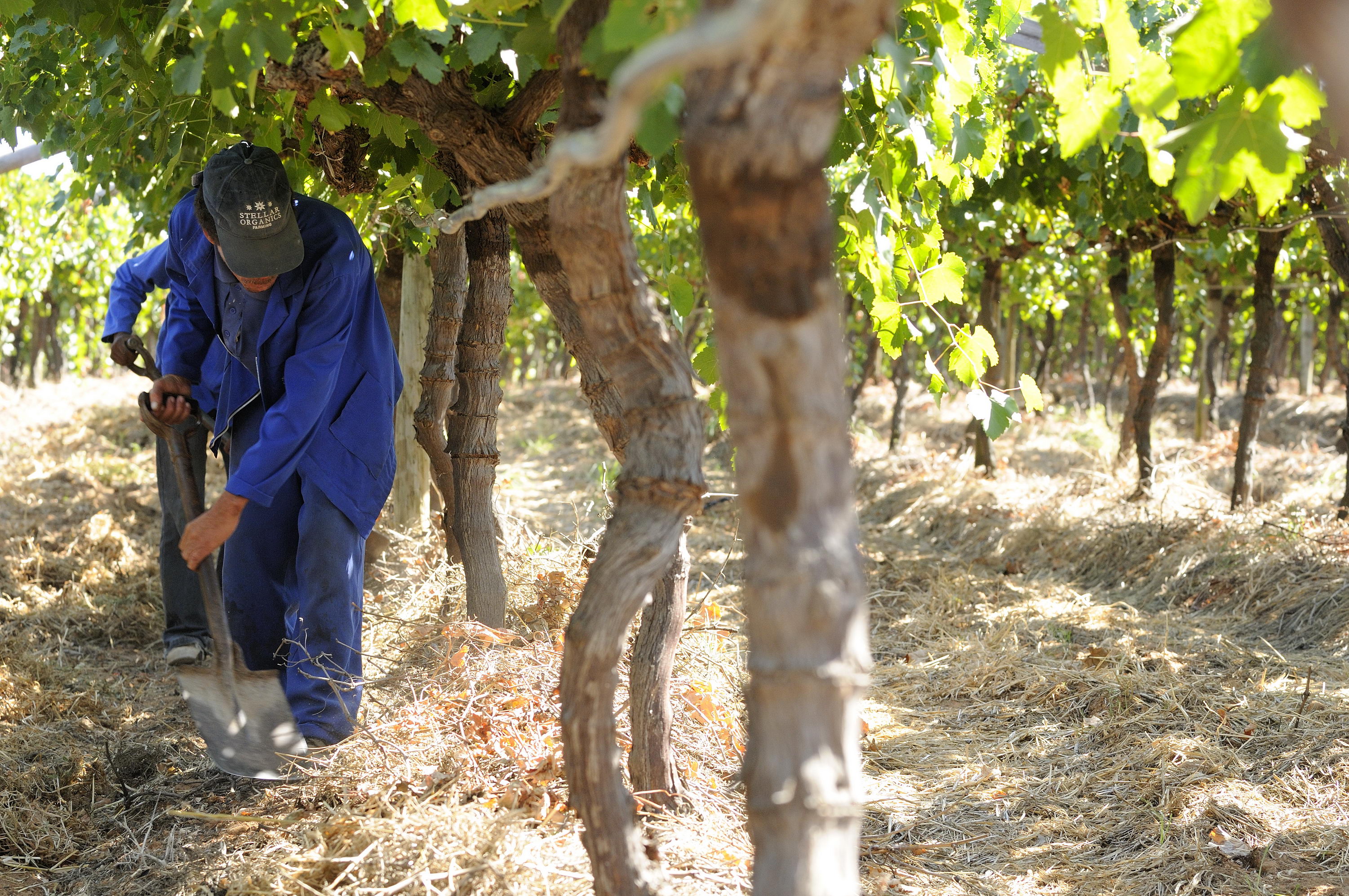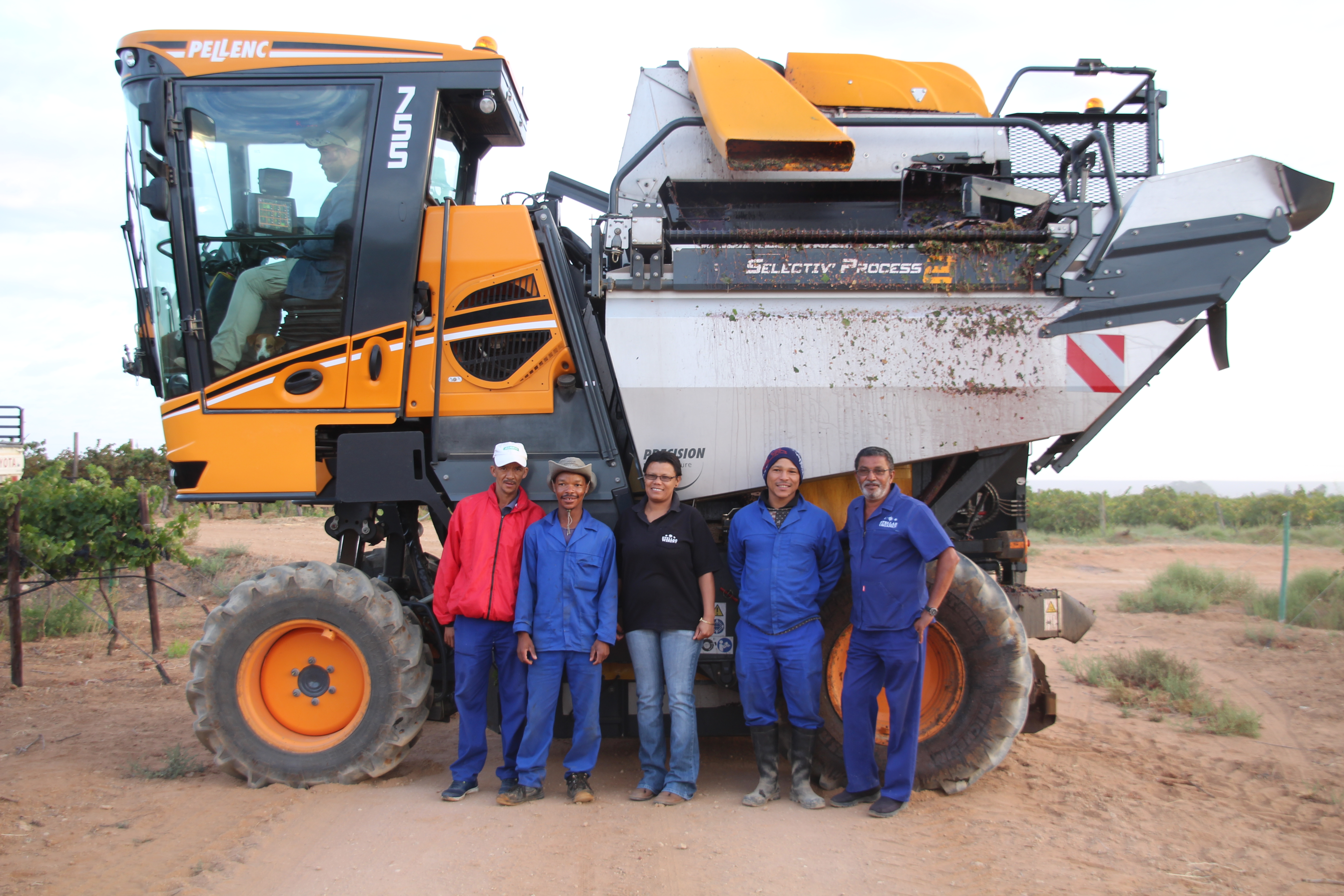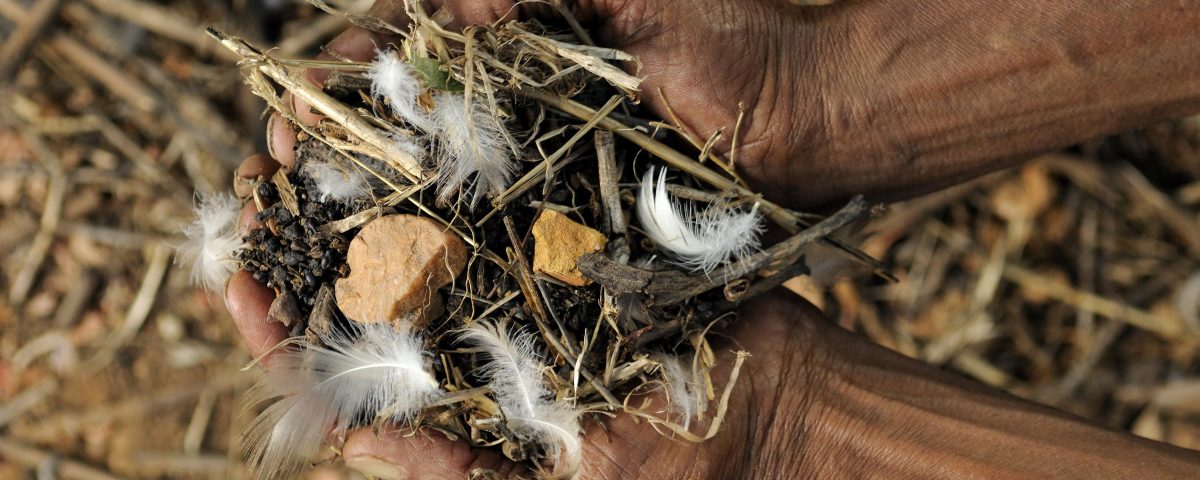
Dig This! Shiraz/Merlot during #OrganicSeptember
September 20, 2017
Stellar Winery: producing organic, vegan wines of excellent quality
October 25, 2017

Stellar Organic Winery decided years ago that they want to be a wine producer with a difference. They have a lot of methods in place to make sure they handle their vineyards with care and to ensure the best quality grapes are produced. They also invest in their workers to make sure they have the best possible working conditions and help to improve their general quality of life.
Stellar Winery is situated at Kys Halte, just outside Vredendal, Western Cape, which borders the Namaqualand – the only semi-arid biosphere hotspot in the world. Innovation is one of Stellar’s strengths and since their wines first appeared on the market in 2003 they have broken new ground in both winemaking and social development. All Stellar Winery’s wines are certified organic, gluten free, vegan friendly and fair trade according to Fair for Life regulations, giving wine drinkers a guilt free experience. They also have a few no sulphur added ranges for those allergic to sulfites.
Stellar Winery’s unique vineyard approach
Stellar Winery’s vineyard process and approach differs from other conventional wine farms. They are only allowed to use compost, phosphorus and potassium fertilizer that originates from rocks. According to Klaas Coetzee, head winemaker, production manager and general arbiter of quality at Stellar Winery, they are not allowed to spray any chemical pesticides and herbicides which are prohibited by the EU certification body, Ecocert. According to the EU organic law, there are a few fungicides that Stellar Winery is allowed to use – for example copper and sulphur. They have also had to get creative with pest control, which is why Stellar Winery uses Indian Runner Ducks in the vineyards to take care of snails. Organic farming is also more sustainable because it creates an ecosystem in the vineyard which is self-sufficient and self-regulating.
“Firstly we believe that terroir is everything. We select the right terroir for every varietal,” Klaas explains.
Stellar Winery has vineyards in Trawal and in Koekenaap and they also source organic grapes from a number of independent farms. Their Koekenaap vineyards are located in a cool climate area, one of the best regions to grow grapes. The factors that contribute to the terroir all work together to produce grapes of quality. The viticulturist and the winemaker are not there to influence terroir, but to express the terroir to its full potential. The proximity of the vineyards in relation to the Atlantic Ocean is an enormously positive factor for the production of high-quality organic wine. The semi-arid climate minimises the potential for fungal disease. Access to a good source of irrigation ensures crop sustainability and the natural vegetation surrounding the organic vineyards protects crops from contamination.
Wilhelm Steenkamp, viticulturist for Stellar Winery, believes in quality before quantity. They make sure to use skilled pruning techniques, managing the foliage well and monitoring the water usage. They also take a good look at the colour and flavour of the grapes and they press the grapes when the varietal are ripe. They also wait to press the grapes until circumstances are 100% right.
“The viticulturist visits the farms and the vineyard regularly and gives advice where needed. Our producers have been on this journey with us for quite some time and they know what our wine goal is,” says Wilhelm.
According to Klaas, Stellar Winery’s new plantings are all high density plantings to ensure a low yield per vine that ensures good quality fruit.
“We do all final pruning by hand to make sure our crop is perfect. Furthermore we do green shoot removal as well as leaf removal to ensure that we have enough diffused light in the canopy,” Klaas explains and adds that these practices ensures an abundance of fruit in their wines.
The implementation of new technology
Stellar Winery is fair trade certified according to Fair for Life standards and ensures the employees at Stellar Winery work in the best possible working conditions. With the purchase of
new equipment they have had to employ even more people and also train them to operate this new technology.
“We now have more farm workers employed by Stellar Winery than in the past and we provide job opportunities for the entire year, with all the benefits according to Fair for Life standards,” Wilhelm explains and adds that this gives them the opportunity to provide training to ensure they have more skilled and happier workers for the years to come.
“We use technology to make the process run more smoothly, however this has not had a negative effect on employee retention. On the contrary, the overall and general wellbeing of the workforce has improved,” Wilhelm explains.
Stellar Winery makes use of the Pellenc Optimum in their vineyards and according to Wilhelm it harvests 99.9% pure grapes, which leaves them with a much higher quality product for the winemaking process.
“The Pellenc 755 with its Tool Carrier also does the work at double the speed of a normal tractor,” Wilhelm explains and adds that with the Clemens Shovel and Brushcutter they have better control over the weeds that grow in the vineyards. According to Wilhelm the Clemens Leaf Remover helps them to remove the leaves faster than usual and this helps with the light exposure in the vineyards.
Stellar Winery is also constantly looking for ways to improve their way of business as well as ensuring they create a sustainable environment.
“We’re planning to convert as many farms as possible to create an organic ‘safe zone’ without any pollution from neighboring farms,” Klaas explains.
The effect of the drought
According to Klaas, because the vineyard is in a dormant state during the winter, up until now the intense water shortage has not had any effect on the grapes produced. Wilhelm emphasizes that, moving forward, the drought will have an effect, and is of the opinion that it depends on what you make of it. Some of the varietals that are planted in certain types of soil will perhaps produce fewer grapes and others will produce the same amount, but at a higher quality.
“All our farms have boreholes to supply us with water in dry spells like this. The quality of the water is not as good as the water from the canal but it will ensure a crop,” Klaas explains. Stellar Winery does soil-moisture monitoring on all their vineyards to ensure they know exactly how much they have to apply without over irrigating.
“Normally in circumstances like this, the vine will produce smaller berries, which is positive in terms of quality but not in terms of quantity,” Klaas explains.
Vineyard budding process
With the arrival of spring, this is the also time that vineyards go into the next step of the vineyard growth process and according to Klaas the early varietals like Chenin Blanc and Chardonnay are well on their way.
“The crop looks good but it is still too early to say what the end result will look like” he explains.
“Every year we learn something new about vineyards and wine and there will be a lot of challenges in the 2018 harvest season, but we are looking forward to it. This year is a year unlike any other!” says Wilhelm.
Facebook: @StellarOrganicWinery
Twitter: @StellarOrganic
Instagram @StellarOrganic




